Labor Day Weekend 2019
Friday, August 30th, 2019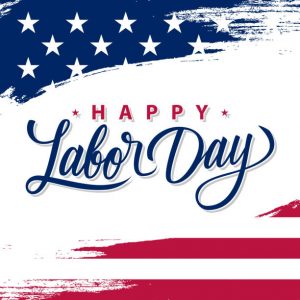 Labor Day 2019 in Southeastern North Carolina is expected to be a busy and dangerous holiday. Being the holiday weekend that traditionally wraps up the summer season, travelers are anxious to get their last beach trip of the year started, and Star News reported yesterday that nearly one-third more fatal accidents occur on Labor Day weekend than a typical three-day period. In 2017 alone, 354 fatal car accidents occurred during the Labor Day weekend across the United States, leaving 374 people dead.
Labor Day 2019 in Southeastern North Carolina is expected to be a busy and dangerous holiday. Being the holiday weekend that traditionally wraps up the summer season, travelers are anxious to get their last beach trip of the year started, and Star News reported yesterday that nearly one-third more fatal accidents occur on Labor Day weekend than a typical three-day period. In 2017 alone, 354 fatal car accidents occurred during the Labor Day weekend across the United States, leaving 374 people dead.
The Wilmington Police Department (WPD) has handled over 100 crashes per Labor Day weekend for the past 3 years, with none of those ending in fatalities. However, DWI-related stops have become more frequent each year and in 2018 alone, WPD responded to 13 DWI-related incidents in the Wilmington area. A larger and more widespread police presence will be on duty for the holiday weekend, so drivers should continue to be cautious, use turn signals, follow the speed limits, remove distractions like texting, and never drink and drive. More people on the road simply means more opportunities for car wrecks, and it only takes a moment of distraction to cause a life-altering accident.
In addition to an already-expected increase in traffic, with Hurricane Dorian expected to hit land in Florida early next week, there is concern that evacuees from Florida could cause more traffic congestion on I-95, and some may head our way to escape the torment of the storm.
As well as opportunities for more car accidents, plenty of families will be celebrating this Labor Day weekend, and drinking alcohol is part of many of the events. In the revelry many people will be charged with alcohol related crimes including open container, driving while impaired or driving under the influence (DWI/DUI), fake ID or counterfeit identification, underage drinking, and aiding and abetting these and other crimes.
If you or a loved one is seriously injured in an accident, as a result of someone else’s fault or negligence, we can help you get maximum compensation, meaning money damages, for your pain and suffering, medical bills,, and lost wages.
If you are charged with any type of crime in Southeastern North Carolina, in or around Wilmington NC in New Hanover County, Brunswick County, or Pender County, call Collins Law Firm at 910-793-9000 for a confidential consultation about what we can do for you. In many cases, we are able to negotiate with the charging officer and the district attorney’s office to have a defendant perform volunteer service in order to have the charges dismissed. Sometimes, that volunteer service can be served on the beach picking up trash, and helping keep our beautiful beaches clean, including Wrightsville Beach, Carolina Beach, Topsail Beach, Wilmington Beach, and Kure Beach.
By Karen M. Thompson, Paralegal

 During this December holiday season, a record-breaking 112.5 million Americans will be traveling, which is a 4.4% increase since last year, according to American Automobile Association (AAA). While many people may choose to fly this holiday season, it is important for the ones who are driving to their Christmas destinations to be prepared for their travels, no matter the distance. Some precautions you should take to help ensure safe travels include making sure you have gotten a recent oil change, and if not do so, check your tires to make sure they have the right pressure, keep your gas tank at least ¼ full, do not let it go below that, and be sure to secure all luggage in the car.
During this December holiday season, a record-breaking 112.5 million Americans will be traveling, which is a 4.4% increase since last year, according to American Automobile Association (AAA). While many people may choose to fly this holiday season, it is important for the ones who are driving to their Christmas destinations to be prepared for their travels, no matter the distance. Some precautions you should take to help ensure safe travels include making sure you have gotten a recent oil change, and if not do so, check your tires to make sure they have the right pressure, keep your gas tank at least ¼ full, do not let it go below that, and be sure to secure all luggage in the car. Thanksgiving—traditionally a celebration of the blessings of the year, including the harvest—is generally the begin of the “Holiday Season” in the United States.
Thanksgiving—traditionally a celebration of the blessings of the year, including the harvest—is generally the begin of the “Holiday Season” in the United States. In an attempt to ensure school bus safety, the North Carolina State Highway Patrol is taking proactive steps by launching their annual week-long statewide Operation Stop Arm beginning today, October 15, 2018. State Troopers will be aggressively enforcing stop arm violations and other traffic violations in and around school zones statewide through the end of school Friday, October 19, 2012.
In an attempt to ensure school bus safety, the North Carolina State Highway Patrol is taking proactive steps by launching their annual week-long statewide Operation Stop Arm beginning today, October 15, 2018. State Troopers will be aggressively enforcing stop arm violations and other traffic violations in and around school zones statewide through the end of school Friday, October 19, 2012.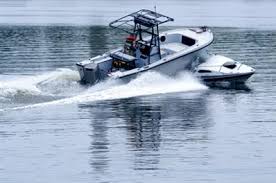 Maritime law, better known as Admiralty law, is a body of law concerning behaviors and activities on the sea. Admiralty law governs the interactions of those who conduct business on the water. Primarily the focus is on international waters, but laws are applied to waters in and around each country.
Maritime law, better known as Admiralty law, is a body of law concerning behaviors and activities on the sea. Admiralty law governs the interactions of those who conduct business on the water. Primarily the focus is on international waters, but laws are applied to waters in and around each country.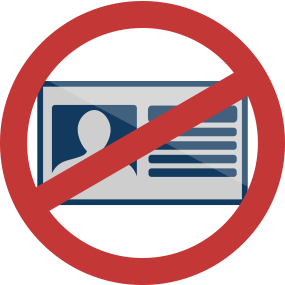 In North Carolina, driving is a privilege. Some drivers however put themselves and others in danger by disregarding traffic laws and driving dangerously, negligently or carelessly. Such driving behavior is an abuse of one’s driving privilege and may result in the loss of said privilege. The temporary loss of one’s driving privilege is called suspension. Upon successful completion of the terms of the suspension, one may get their driving privilege reinstated. Some offenses however, warrant one’s driving privileges to be terminated. This is called revocation. Upon a revocation, one must meet eligibility requirements in order to get their license reinstated and may need to have an administrative hearing. Once found eligible, one will need to reapply for a driver license at a driver license office.
In North Carolina, driving is a privilege. Some drivers however put themselves and others in danger by disregarding traffic laws and driving dangerously, negligently or carelessly. Such driving behavior is an abuse of one’s driving privilege and may result in the loss of said privilege. The temporary loss of one’s driving privilege is called suspension. Upon successful completion of the terms of the suspension, one may get their driving privilege reinstated. Some offenses however, warrant one’s driving privileges to be terminated. This is called revocation. Upon a revocation, one must meet eligibility requirements in order to get their license reinstated and may need to have an administrative hearing. Once found eligible, one will need to reapply for a driver license at a driver license office. Pursuant to North Carolina General Statute § 20-135.2A, all passengers in a vehicle are required to be properly restrained and violations are punishable by fines of currently up to $179.
Pursuant to North Carolina General Statute § 20-135.2A, all passengers in a vehicle are required to be properly restrained and violations are punishable by fines of currently up to $179.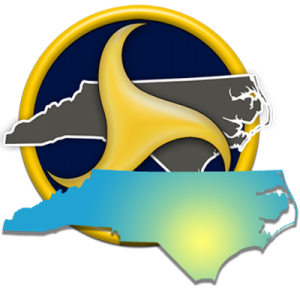 The North Carolina Department of Transportation (NCDOT) is one of the state’s largest agencies and its responsibilities include building, repairing, and operating all kinds of transportation within the state of North Carolina – i.e. highways, railroads, aviation, ferries, public transit, bike paths, and pedestrian walkways.
The North Carolina Department of Transportation (NCDOT) is one of the state’s largest agencies and its responsibilities include building, repairing, and operating all kinds of transportation within the state of North Carolina – i.e. highways, railroads, aviation, ferries, public transit, bike paths, and pedestrian walkways. Sunday, October 1, 2017, Stephen Paddock carried out the deadliest mass shooting in U.S. history. We extend our deepest sympathies to the victims and their families of this unbelievable tragedy.
Sunday, October 1, 2017, Stephen Paddock carried out the deadliest mass shooting in U.S. history. We extend our deepest sympathies to the victims and their families of this unbelievable tragedy.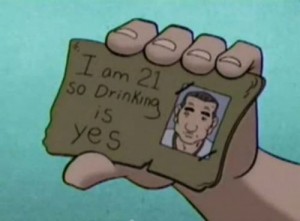 You may want to think twice before using a fake ID in New Hanover or Pender County from now on. Starting October 1, you will face more penalties in court if you are caught using a fake ID.
You may want to think twice before using a fake ID in New Hanover or Pender County from now on. Starting October 1, you will face more penalties in court if you are caught using a fake ID.